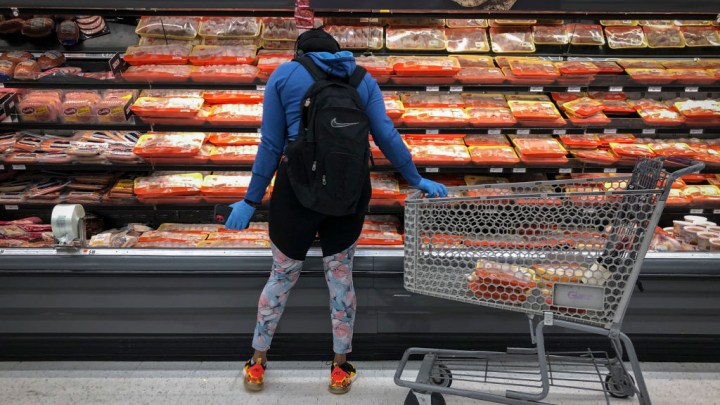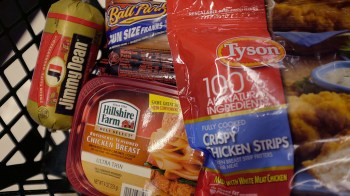
What does President Trump’s order on meat processing plants mean for workers and food supply?
What does President Trump’s order on meat processing plants mean for workers and food supply?

President Donald Trump is invoking his special authority under the Defense Production Act to keep meat processing plants open. Some plants closed after becoming hot spots for COVID-19 infections.
Here’s what the president’s order does: It prevents local authorities from closing meat processing plants in their communities because of COVID-19 infections, as long as those plants are following federal safety guidelines.
The new recommended safety procedures from the Centers for Disease Control and Prevention and the Occupational Safety and Health Administration include guidelines for cleaning and creating distance within workstations. They are not hard and fast rules, however; they are voluntary. The agriculture department is requiring “good faith” effort to comply.
If plant operators are in fact making a good faith effort to follow the guidelines, then the government may stand by them if they’re sued by workers for exposure to the COVID-19.
Given the nature of these facilities it could be difficult to find ways to keep workers away from each other.
“This is a very difficult situation for meatpacking plants, I think, more so than any other type of agriculture food processing plant,” said James MacDonald, professor of agricultural and resource economics at the University of Maryland. “It is going to be very difficult to enforce social distancing rules, I think, within those plants.”
MacDonald told “Marketplace Morning Report” host David Brancaccio companies cannot actually force workers worried about getting sick to actually show up on the job. And, the problem is, many of those workers are already sick.
The meat industry is not only being hit by these challenges on the supply side of things. There’s also a demand shock, as virtually all meat consumption is happening through grocery stores at this moment in time.
“We’ve had to shift probably more than half of beef away from food service and restaurants, and through supermarket chains,” MacDonald said. “And that’s a considerable amount of effort to repackage and re-cut that meat for the supermarket outlets.”
In the last week or two, wholesale prices for meat have risen “fairly sharply,” MacDonald adds. Butcher sections are looking a little thin given the demand there.
Then there’s the issue of what happens to animals that don’t get to market. We’re already seeing some animals at farms “being put down because the plants can’t really handle them at the pace they’re currently working at,” MacDonald said.
At just one poultry-processing plant in Delaware, 2 million chickens will be euthanized because of worker shortages and supply chain troubles.
Click the audio player above to hear the full interview.
There’s a lot happening in the world. Through it all, Marketplace is here for you.
You rely on Marketplace to break down the world’s events and tell you how it affects you in a fact-based, approachable way. We rely on your financial support to keep making that possible.
Your donation today powers the independent journalism that you rely on. For just $5/month, you can help sustain Marketplace so we can keep reporting on the things that matter to you.


















